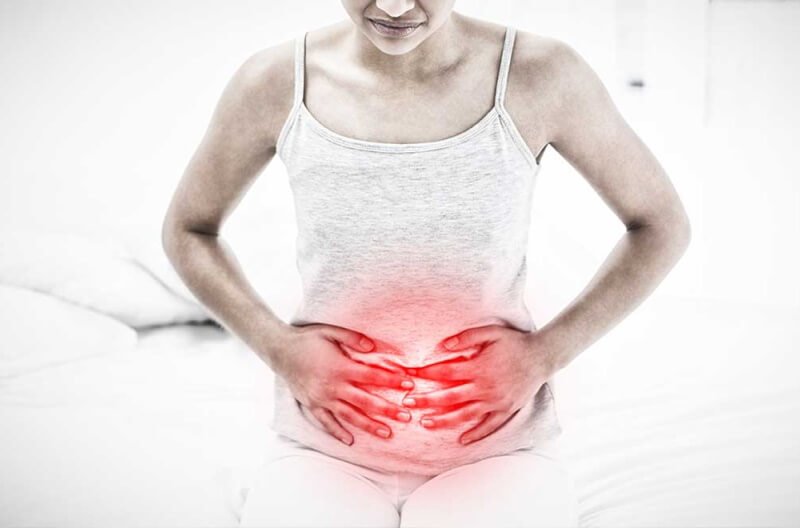Menstruation is a natural and vital process for every woman, yet it often comes with challenges that can affect health, daily activities, and overall well-being. Period issues are among the most common concerns in women’s healthcare, ranging from irregular cycles and heavy bleeding to painful cramps and mood changes. For many women, these challenges go unnoticed or untreated due to stigma, lack of awareness, or hesitation to consult a gynaecologist.
At Karthika Woman and Child Care, Bangalore, we believe in breaking the silence around menstruation and ensuring women receive the right care and support for healthy periods. This blog offers an in-depth guide on period issues, their causes, symptoms, and treatments, while highlighting the importance of consulting specialists to manage them effectively.
What Are Period Issues?
Period issues refer to any irregularities, discomfort, or health problems related to the menstrual cycle. While occasional minor changes may be normal, persistent or severe menstrual problems can indicate underlying health concerns.
Common period issues include:
- Irregular menstrual cycles
- Painful periods (dysmenorrhea)
- Heavy menstrual bleeding (menorrhagia)
- Premenstrual syndrome (PMS) and mood swings
- Missed periods (amenorrhea)
- Spotting between cycles
- Hormonal imbalances affecting menstruation
Causes of Period Issues
Several factors contribute to menstrual problems, including lifestyle, medical conditions, and hormonal changes. Some of the most common causes are:
- Hormonal Imbalances – Conditions like Polycystic Ovary Syndrome (PCOS) and thyroid disorders affect the balance of estrogen and progesterone, leading to irregular periods.
- Stress and Anxiety – Emotional stress can interfere with the hypothalamus, the part of the brain that regulates periods.
- Diet and Nutrition – Poor nutrition, obesity, or being underweight can disrupt the menstrual cycle.
- Uterine Conditions – Fibroids, endometriosis, and pelvic inflammatory disease often cause heavy bleeding and severe cramps.
- Medical Treatments – Certain medications, chemotherapy, or birth control pills can impact regular menstruation.
- Lifestyle Factors – Lack of exercise, smoking, alcohol, and poor sleep patterns can worsen period issues.
Symptoms That Indicate Period Issues
Women should be attentive to the following symptoms, as they may require medical evaluation:
- Periods lasting longer than 7 days
- Extremely heavy bleeding (changing pads every 1–2 hours)
- Severe cramps interfering with daily life
- Frequent missed cycles without pregnancy
- Fatigue, dizziness, or anemia due to blood loss
- Mood changes, depression, or anxiety linked to PMS
- Spotting or bleeding between periods
Common Period Issues and Their Treatments
1. Irregular Periods
Irregular cycles are common, especially during adolescence and perimenopause. However, persistent irregularities may indicate hormonal imbalance or PCOS.
Treatment:
- Hormone-regulating medication
- Lifestyle modifications like balanced diet and exercise
- Stress management practices
2. Painful Periods (Dysmenorrhea)
Cramps are caused by uterine contractions, but severe pain may signal conditions like endometriosis.
Treatment:
- Pain relief medications
- Heat therapy and relaxation exercises
- Laparoscopic treatment for underlying conditions
3. Heavy Menstrual Bleeding (Menorrhagia)
This condition can cause anemia and fatigue, often linked to fibroids or thyroid issues.
Treatment:
- Hormonal therapy
- Iron supplements
- Minimally invasive surgeries for fibroids
4. Premenstrual Syndrome (PMS)
Symptoms include mood swings, bloating, and fatigue before periods.
Treatment:
- Lifestyle adjustments (diet, exercise, yoga)
- Medication for severe mood symptoms
- Nutritional supplements like calcium and magnesium
5. Missed Periods (Amenorrhea)
This may occur due to pregnancy, menopause, stress, or health conditions like PCOS.
Treatment:
- Hormone therapy
- Fertility treatments if related to reproductive issues
- Addressing underlying health problems
Managing Period Issues Naturally
While medical care is essential, certain lifestyle habits can ease menstrual problems:
- Balanced Diet: Include iron-rich foods, fresh fruits, leafy vegetables, and whole grains.
- Exercise: Regular physical activity helps regulate hormones and reduce cramps.
- Hydration: Drinking enough water reduces bloating and fatigue.
- Sleep: Adequate rest helps regulate the menstrual cycle.
- Stress Management: Yoga, meditation, and breathing exercises can help maintain hormonal balance.
When to See a Gynaecologist
You should book a gynaecology appointment at Karthika Woman and Child Care if:
- You experience prolonged or heavy bleeding
- Pain prevents you from daily activities
- You miss periods frequently without pregnancy
- You notice unusual vaginal discharge with odor
- PMS symptoms affect your mental health
Period Issues and Reproductive Health
Ignoring menstrual problems can have long-term impacts on fertility and reproductive health. Conditions like PCOS and endometriosis not only cause irregularities but may also affect a woman’s ability to conceive. Early diagnosis and treatment ensure better health outcomes.
Period Issues in Teenagers
Teenage girls often face irregular cycles, painful cramps, and heavy bleeding during the first few years after menarche. Providing awareness, emotional support, and medical guidance ensures healthy menstrual development.
Period Issues During Menopause
As women approach menopause, cycles may become irregular, with hot flashes, mood changes, and sleep disturbances. Consulting a gynaecologist helps manage these symptoms effectively.
How Karthika Woman and Child Care Supports Women
At Karthika Woman and Child Care, Bangalore, we provide personalized treatment for all kinds of period issues. Our experienced gynaecologists focus on:
- Accurate diagnosis with advanced medical tests
- Customized treatment plans for menstrual health
- Holistic care including diet and lifestyle counseling
- Compassionate support for women of all ages
We prioritize women’s health and aim to empower women by breaking the stigma around menstrual health.
FAQs on Period Issues
Q1. Are irregular periods normal?
Yes, occasional irregular periods are common, but persistent irregularity requires medical attention.
Q2. Can period issues affect fertility?
Yes, untreated conditions like PCOS or endometriosis may affect fertility.
Q3. How can I relieve period cramps naturally?
Hot compress, yoga, hydration, and a healthy diet can reduce pain.
Q4. What should I eat during my periods?
Iron-rich foods, leafy greens, fruits, and plenty of fluids help manage fatigue and improve well-being.
Q5. When should I consult a gynaecologist for period issues?
If bleeding is too heavy, cycles are missed often, or pain interferes with daily life, it’s time to consult a doctor.
Conclusion
Period issues are common but should never be ignored. From irregular cycles and heavy bleeding to painful cramps and hormonal imbalances, menstrual problems affect a woman’s overall health and quality of life. With timely medical care, lifestyle management, and awareness, these issues can be effectively treated.
At Karthika Woman and Child Care, Bangalore, we are committed to providing expert care for women facing menstrual health concerns. Every woman deserves a healthy cycle and the confidence to manage her reproductive health without hesitation.
📍 Karthika Woman and Child Care
Bangalore, India
📞 Contact: +91 99728 99728
🌐 Website: karthikawomanandchildcare.in


